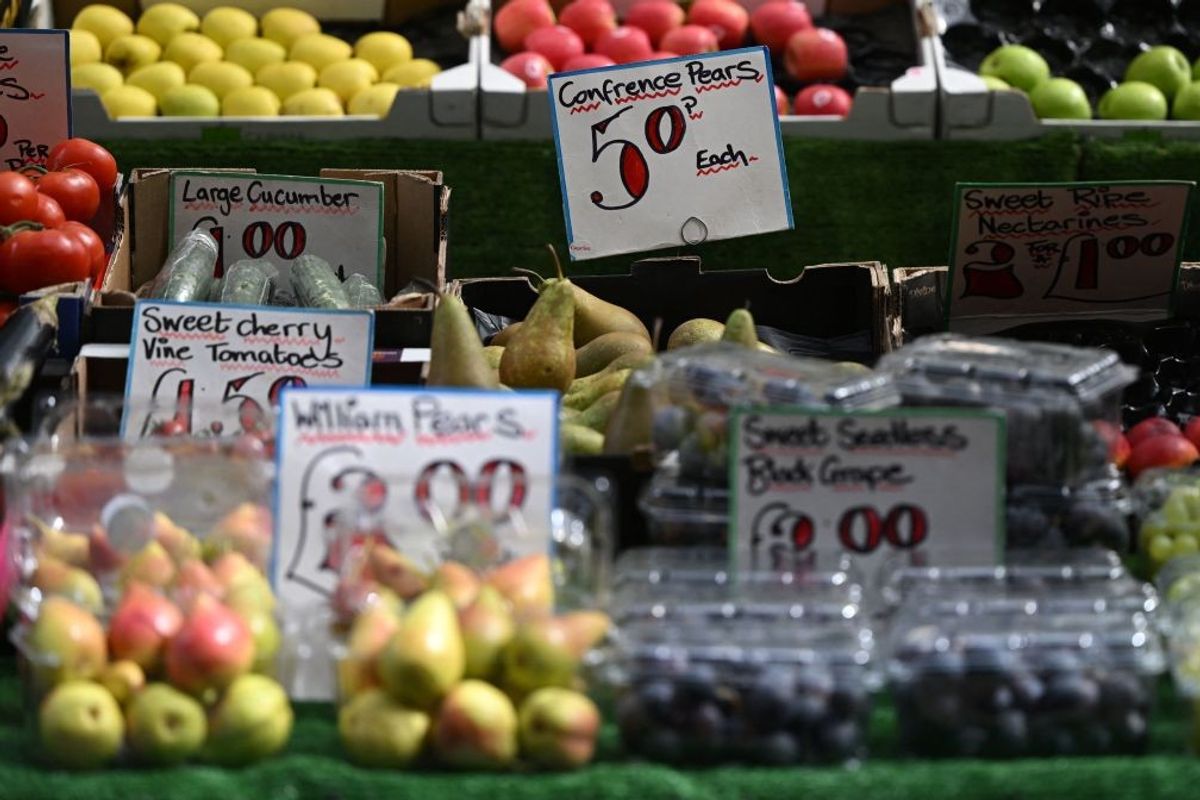British inflation surged last month to its highest annual rate since 1982, piling pressure on Chancellor Rishi Sunak to step up his help for households facing a worsening cost-of-living crisis.
Consumer price inflation hit 9 per cent in April, the Office for National Statistics said on Wednesday (May 18), surpassing the peaks of the early 1990s recession that many Britons remember for sky-high interest rates and widespread mortgage defaults.
Britain now has the highest inflation rate of Europe's five biggest economies and almost certainly the Group of Seven countries, with Canada and Japan yet to report figures for April. Neither are likely to match Britain's price growth.
"We cannot protect people completely from these global challenges but are providing significant support where we can, and stand ready to take further action," Sunak said.
Soaring energy bills were the biggest inflation driver, reflecting last month's increase in regulated energy tariffs. Knock-on effects from Russia's invasion of Ukraine means those bills are likely to jump higher again in October.
Households are facing the biggest cost-of-living squeeze since records began in the 1950s, according to Britain's budget forecasters, and consumer confidence has sunk towards all-time lows.
Anti-poverty campaigners called on Sunak to act now, starting with an immediate increase in the value of welfare benefits to match inflation.
"As the price of essentials like food and energy continue to soar, the Chancellor's inaction will make an already desperate situation for many even worse," Rebecca McDonald, senior economist at the Joseph Rowntree Foundation which campaigns on behalf of lower-income households, said.
A survey published on Tuesday showed two in three people in Britain had kept their heating off when they would normally have turned it on, almost half were driving less or changing supermarkets and just over a quarter say they have skipped meals.
More pressure on businesses
Food prices rose by 6.7 per cent in the 12 months to April, the ONS said.
Helen Dickinson, chief executive of the British Retail Consortium, said the inflationary pressures continue to impact businesses as well as households, with soaring energy prices further driving up the Consumer Price Index.
“These higher energy prices, along with a tight labour market, and the huge costs of moving goods around, are impacting all retailers. Food production has been particularly hard hit, with historically high global food prices, rising costs of animal feed, and disruption in supplies as a result of the Ukraine war,” she said.
Dickinson added that retailers are doing their bit to protect consumers by expanding their value ranges and doing all they can to keep the price of essentials down.
“This can be seen in the BRC’s Shop Price Index, which tracks the price of basic goods, which showed a slower rise in the price of essential foods and other products than the inflation levels seen in the broader CPI measure,” she added.
The British Independent Retailers Association (Bira) has called for a reduction in business rates to support those struggling to deal with the extra costs.
“Inflation at these levels, the highest for 40 years, is a new challenge for many independent retailers,” Bira's chief executive Andrew Goodacre said.
“Whilst there is understandable focus on the cost of living, we would urge the government not to forget about targeted support for businesses also struggling to deal with the extra costs due to inflationary pressures.
“Retailers are doing all they can to reduce the impact on prices for shoppers which means reduced profit margins for everyone. We would like to see this year’s 100 per cent increase in business rates reversed and some way of helping businesses manage the rising costs of energy.”
On Monday, Bank of England Governor Andrew Bailey, speaking to lawmakers, said food price rises were a major worry as he apologised for "being apocalyptic for a moment."
While the government has said it now has a 22 billion-pound package of support for households, much of this is cancelled out by the effect of recent tax increases on workers.
An increase in prices charged by restaurants and cafes, as value-added tax rates went back to their pre-pandemic levels in April, also added to the inflation jump last month.
Worse to come
The BoE this month forecast inflation would top 10 per cent later this year and investors expect it will add to the four interest rate increases it has implemented since December and which have taken its Bank Rate to 1 per cent, its highest since 2009.
"Things are going to get worse before they get better," said Paul Dales, chief UK economist at Capital Economics consultancy of Wednesday's data.
Retail price inflation - an older measure which the ONS says is now inaccurate, but which is widely used in commercial contracts and to set interest payments on inflation-linked government bonds - jumped to 11.1 per cent last month, also the highest since 1982.
There were signs of further inflation pressure ahead as manufacturers suffered the joint biggest increase on record in the prices they pay for their raw materials, which were up by an annual 18.6 per cent, matching March's high.
Factories increased their prices by 14 per cent over the 12 months to April, the biggest jump since July 2008.





